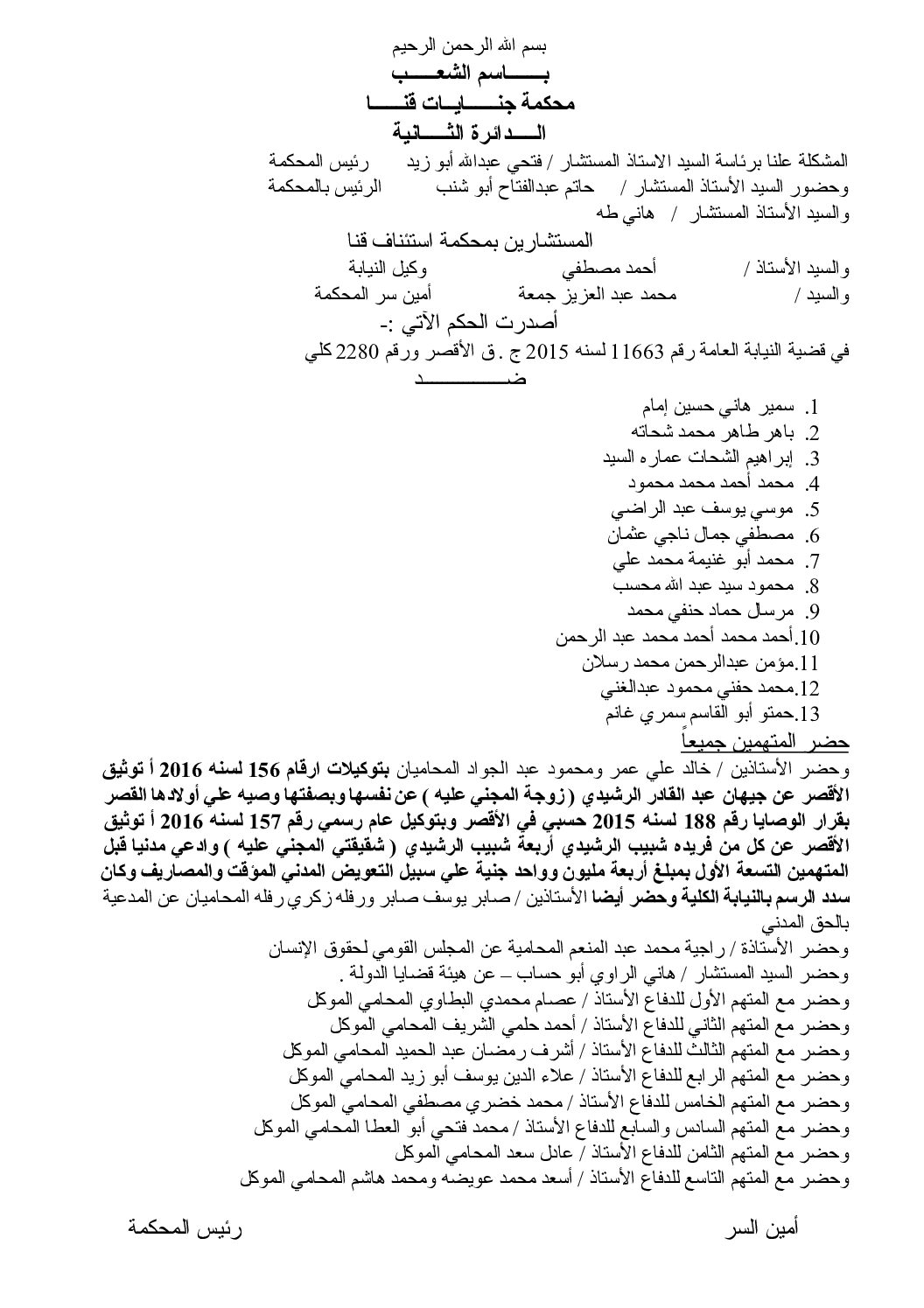Criminal Justice | Despite weak and contradictory evidence, Military Court Serves Aggravated Prison Sentences in Alexandria’s Abu-Qir Train Bombing

-
Prison sentences up to life in prison for 9 defendants
-
Evidence loss, denying witnesses, contradictory reports and investigations
-
Technical report denies use of explosives
On 17 March 2015, Alexandria Military Criminal Court served (in case number 5 of 2015) nine defendants with prison terms. They were charged with attempting to blow up Abu-Qir train in Alexandria on 3 July 2014.
The military court ruled in the presence of the defenders, serving the first defendant 15 years in prison, the second and fourth defendants 10 years, the fifth five years. The court also ruled to refer the third defendant to the Juvenile Court that has jurisdiction because the defendant was under fifteen years of age when the crime was committed. The court also sentenced four defendants in absentia to life imprisonment.
The case started when the Public Prosecution issued an arrest warrant for the defendants on 6 July 2014. They were charged with planting a bomb on Alexandria’s Abu-Qir train at Sidi Gaber station on 3 July 2014. Although the documents and facts of the case and the incriminating evidence are highly questionable, the ruling came out as we mentioned above.
Testimonies of defense witnesses
According to defense witnesses, the second defendant was leading night prayers at a mosque in Sidi Bishr during the incident. The first defendant was also arrested from his house on 4 July 2014, i.e. two days before the arrest warrant was issued. The fourth defendant was arrested at his workplace on 5 July 2014, a day before the warrant.
Evidence
When the case was referred to the military court, 4 CDs were missing from the evidence. These CDs were supposed to contain security camera footage from Sidi Gaber station during the incident.
Medical reports
There are contradictions between the medical reports issued by the University Hospital in Alexandria on the day of the incident and those issued by the Armed Forces Hospital the day after. The naïve conflict is manifested clearly in the report of a victim who was diagnosed with “post-concussion suspicion” at the University Hospital, then diagnosed with “various bruises and fragments in the right ankle and knee and a cut on the left ankle” the day after in the report issued by the Armed Forces Hospital.
Investigations
The personal information of the fifth defendant were different from those in the investigation report upon which the arrest warrant was issued. This means the defendant is someone else other than the individual who was investigated.
It was written that the first defendant is responsible for the mental and physical preparation of the members of the committee that committed the crime as per the report used to issue the arrest warrant. But during the public prosecution investigations, the defendant presented a medical report issued by the University Hospital in Alexandria proving he is suffering from pain in both legs due to a spinal disc herniation. He also had a surgery on 23 December 2012. When the investigating officer from the National Security Authority was asked in front of the prosecution, his testimony was different. He accused the first defendant with preparing the bomb. This is enough proof that the accusations are malicious and ungrounded.
Technical inspection report
The technical inspection report issued by the Ministry of Interior, General Department for Investigating Criminal Evidence, Department of Fires and Explosions suggested that the first piece of evidence confiscated while in the possession of the first defendant does not contain explosive materials, but in fact a CPU cooling fan and lab tools.
The previous evidence did not convince the military court that issued the ruling above. The defense is waiting for the grounds of ruling to pursue the challenge procedures.

